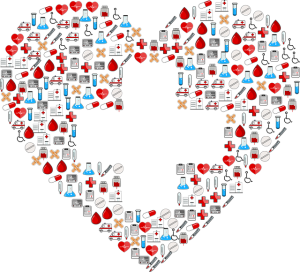
I am sure we have all seen someone that seems to thrive under stress and are resilient. How does this happen to some and not others?
There are three primary points that help people deal with stress and stay healthy. They are:
- These people are committed to what they do in terms of prevention and staying healthy
- They feel in control of their lives and play an active role in prevention
- They see changes and medical needs as a challenge
Usually, when we experience stress we react in some manner. Our heart rate goes up, fats, cholesterol and sugar increases in your blood stream, your stomach secretes more acid and your immune system slows down. We are not even aware that this is happening most of the time. Over time this leaves us vulnerable to disease. Our genetics are partly responsible for diseases we inherit but our reactivity to the environment plays a role, as well. The three Cs as mentioned; commitment, control and challenges all point to a concept called psychological hardiness. This type of person tends to respond (not react) to change with confidence and the view that change is an opportunity, not something to be afraid of. People who do not display traits of hardiness are more apt to become ill, both mentally and physically, when faced with stressors.
Dr. George Slavich at UCLA Medical Center researches stress and the effects it has on us. His research points to the fact that inflammation in our bodies are influenced by cues, signals and events in our outer social and physical environment. Essentially inflammation is increased as a result of environmental processes and psychological stress. Inflammation fosters many diseases in our body. Inflammation can increase our risk of health problems.
As I mentioned before we cannot deny our genetics, but our genetics do not determine our destiny. So, how can we develop more hardiness and cope with stress in a healthy manner?
- Learn to accept change. Put changes into a healthy perspective. Realize that change is one constant in life. Put it in a different context; appreciate that the change is occurring and a new chapter beginning.
- Learn to let go. Life changes are some of the most stressful changes in our lives. Death of a loved one, divorce or a radical change is followed by grief and an adjustment period. There is no timeline for grief but realize that eventually you must move forward.
- Pay attention to your family history of illness and always follow the guidelines for medical care but also realize that how you choose to deal with and control your destiny is also important.
- Have a good social support system and surround yourself with friends and family.
- When you are feeling stressed, try some deep breathing, going outside for a quick walk or write your thoughts in a journal.
References:
http://www.uclastresslab.org/pubs/Slavich_Psychoneuroimmunology_OxfordHandbook_in%20press.pdf
